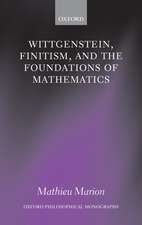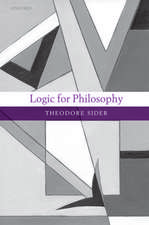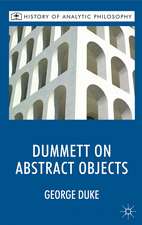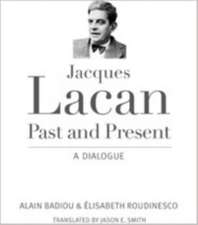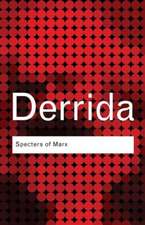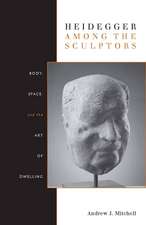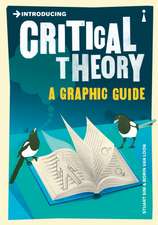For What Tomorrow . . .: A Dialogue: Cultural Memory in the Present
Autor Jacques Derrida, Elisabeth Roudinesco Traducere de Jeff Forten Limba Engleză Paperback – 7 iun 2004
“For what tomorrow will be, no one knows,” writes Victor Hugo.
This dialogue, proposed to Jacques Derrida by the historian Elisabeth Roudinesco, brings together two longtime friends who share a common history and an intellectual heritage. While their perspectives are often different, they have many common reference points: psychoanalysis, above all, but also the authors and works that have come to be known outside France as “post-structuralist.”
Beginning with a revealing glance back at the French intellectual scene over the past forty years, Derrida and Roudinesco go on to address a number of major social and political issues. Their extraordinarily wide-ranging discussion covers topics such as immigration, hospitality, gender equality, and “political correctness”; the disordering of the traditional family, same-sex unions, and reproductive technologies; the freedom of the “subject” over and against “scientism”; violence against animals; the haunting specter of communism and revolution; the present and future of anti-Semitism (as well as that which marked Derrida’s own history) and the hazardous politics of criticizing the state of Israel; the principled abolition of the death penalty; and, to conclude, a chapter “in praise of psychoanalysis.”
These exchanges not only help to situate Derrida's thought within the milieu out of which it grew, they also show more clearly than ever how this thought, impelled by a deep concern for justice, can be brought to bear on the social and political issues of our day. What emerges here above all, far from an abstract, apolitical discourse, is a call to take responsibility—for the inheritance of a past, for the singularities of the present, and for the unforeseeable tasks of the future.
This dialogue, proposed to Jacques Derrida by the historian Elisabeth Roudinesco, brings together two longtime friends who share a common history and an intellectual heritage. While their perspectives are often different, they have many common reference points: psychoanalysis, above all, but also the authors and works that have come to be known outside France as “post-structuralist.”
Beginning with a revealing glance back at the French intellectual scene over the past forty years, Derrida and Roudinesco go on to address a number of major social and political issues. Their extraordinarily wide-ranging discussion covers topics such as immigration, hospitality, gender equality, and “political correctness”; the disordering of the traditional family, same-sex unions, and reproductive technologies; the freedom of the “subject” over and against “scientism”; violence against animals; the haunting specter of communism and revolution; the present and future of anti-Semitism (as well as that which marked Derrida’s own history) and the hazardous politics of criticizing the state of Israel; the principled abolition of the death penalty; and, to conclude, a chapter “in praise of psychoanalysis.”
These exchanges not only help to situate Derrida's thought within the milieu out of which it grew, they also show more clearly than ever how this thought, impelled by a deep concern for justice, can be brought to bear on the social and political issues of our day. What emerges here above all, far from an abstract, apolitical discourse, is a call to take responsibility—for the inheritance of a past, for the singularities of the present, and for the unforeseeable tasks of the future.
| Toate formatele și edițiile | Preț | Express |
|---|---|---|
| Paperback (1) | 159.75 lei 3-5 săpt. | +35.32 lei 7-13 zile |
| Stanford University Press – 7 iun 2004 | 159.75 lei 3-5 săpt. | +35.32 lei 7-13 zile |
| Hardback (1) | 615.74 lei 6-8 săpt. | |
| Stanford University Press – 7 iun 2004 | 615.74 lei 6-8 săpt. |
Din seria Cultural Memory in the Present
-
 Preț: 173.10 lei
Preț: 173.10 lei -
 Preț: 197.12 lei
Preț: 197.12 lei -
 Preț: 365.56 lei
Preț: 365.56 lei -
 Preț: 193.14 lei
Preț: 193.14 lei -
 Preț: 194.26 lei
Preț: 194.26 lei -
 Preț: 155.84 lei
Preț: 155.84 lei -
 Preț: 155.89 lei
Preț: 155.89 lei -
 Preț: 149.68 lei
Preț: 149.68 lei -
 Preț: 211.98 lei
Preț: 211.98 lei -
 Preț: 228.62 lei
Preț: 228.62 lei -
 Preț: 206.94 lei
Preț: 206.94 lei -
 Preț: 209.36 lei
Preț: 209.36 lei -
 Preț: 193.58 lei
Preț: 193.58 lei -
 Preț: 156.25 lei
Preț: 156.25 lei -
 Preț: 146.22 lei
Preț: 146.22 lei -
 Preț: 171.47 lei
Preț: 171.47 lei -
 Preț: 194.45 lei
Preț: 194.45 lei -
 Preț: 229.26 lei
Preț: 229.26 lei -
 Preț: 296.64 lei
Preț: 296.64 lei -
 Preț: 210.24 lei
Preț: 210.24 lei -
 Preț: 228.62 lei
Preț: 228.62 lei -
 Preț: 278.31 lei
Preț: 278.31 lei -
 Preț: 298.62 lei
Preț: 298.62 lei -
 Preț: 153.16 lei
Preț: 153.16 lei -
 Preț: 193.58 lei
Preț: 193.58 lei -
 Preț: 204.76 lei
Preț: 204.76 lei -
 Preț: 228.39 lei
Preț: 228.39 lei -
 Preț: 139.64 lei
Preț: 139.64 lei -
 Preț: 243.46 lei
Preț: 243.46 lei -
 Preț: 201.90 lei
Preț: 201.90 lei -
 Preț: 152.36 lei
Preț: 152.36 lei -
 Preț: 226.40 lei
Preț: 226.40 lei -
 Preț: 169.59 lei
Preț: 169.59 lei -
 Preț: 197.12 lei
Preț: 197.12 lei -
 Preț: 194.88 lei
Preț: 194.88 lei -
 Preț: 170.65 lei
Preț: 170.65 lei -
 Preț: 194.45 lei
Preț: 194.45 lei -
 Preț: 151.12 lei
Preț: 151.12 lei -
 Preț: 194.01 lei
Preț: 194.01 lei -
 Preț: 194.45 lei
Preț: 194.45 lei -
 Preț: 208.06 lei
Preț: 208.06 lei -
 Preț: 196.69 lei
Preț: 196.69 lei -
 Preț: 142.73 lei
Preț: 142.73 lei -
 Preț: 466.13 lei
Preț: 466.13 lei -
 Preț: 167.15 lei
Preț: 167.15 lei -
 Preț: 194.45 lei
Preț: 194.45 lei -
 Preț: 173.51 lei
Preț: 173.51 lei -
 Preț: 232.11 lei
Preț: 232.11 lei -
 Preț: 207.13 lei
Preț: 207.13 lei -
 Preț: 150.09 lei
Preț: 150.09 lei
Preț: 159.75 lei
Nou
Puncte Express: 240
Preț estimativ în valută:
30.57€ • 31.92$ • 25.30£
30.57€ • 31.92$ • 25.30£
Carte disponibilă
Livrare economică 14-28 martie
Livrare express 28 februarie-06 martie pentru 45.31 lei
Preluare comenzi: 021 569.72.76
Specificații
ISBN-13: 9780804746274
ISBN-10: 0804746273
Pagini: 256
Dimensiuni: 152 x 229 x 15 mm
Greutate: 0.35 kg
Ediția:1
Editura: Stanford University Press
Colecția Stanford University Press
Seria Cultural Memory in the Present
ISBN-10: 0804746273
Pagini: 256
Dimensiuni: 152 x 229 x 15 mm
Greutate: 0.35 kg
Ediția:1
Editura: Stanford University Press
Colecția Stanford University Press
Seria Cultural Memory in the Present
Recenzii
"Jacques Derrida, notorious for producing intensely difficult works on aspects of the history of philosophy, here shows himself in another light dealing concretely and practically with some of the pressing social and political issues of our day."
—Philosophy in Review/Comptes Rendus philosophiques
—Philosophy in Review/Comptes Rendus philosophiques
Notă biografică
Jacques Derrida was Director of Studies at the Ecole des Hautes Etudes en Sciences Sociales and Professor of Humanities at the University of California, Irvine. Elisabeth Roudinesco teaches at the Ecole Pratique des Hautes Etudes, Paris.
Descriere
This dialogue, proposed to Derrida by the historian Elisabeth Roudinesco, brings together two longtime friends who share a common history and an intellectual heritage. While their perspectives are often different, they have many common reference points: psychoanalysis, above all, but also the authors and works that have come to be known outside France as "post-structuralist."



